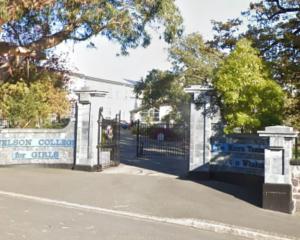
And continuation of the $40 million a year programme, first introduced in New Zealand in the 1980s, should be investigated after it was scrapped in New South Wales late last year.
The Education Review Office's Evaluation at a Glance: A Decade of Assessment in New Zealand Primary Schools - Practice and trends report, highlighted Reading Recovery as an area of our curriculum that needed addressing.
It comes after repeated calls for the literacy programme to be axed in New Zealand and as Kiwi children's reading levels dropped to the lowest on record in 2016, with one expert claiming "we are failing our kids".
However the Ministry of Education is defending the programme, saying it worked for most students.
The April 2018 ERO report said when some Year 1 teachers identified under-achieving students they failed to take action, instead relying on interventions such as Reading Recovery.
"There remains an assumption that all students that have not progressed initially when learning to read will participate in Reading Recovery and will succeed."
However the report said Reading Recovery, an intensive one-on-one reading programme of up to 20 weeks, was proven to be more successful for students in higher decile schools .
"New Zealand data indicates that Maori and Pacific students, and those from low decile schools were less likely to have been successfully discontinued from RR, and more likely to be referred on for further specialist help."
Reading Recovery targets the bottom 15 per cent of learners and goes against modern approaches taken by other developed countries to target problem readers in pairs or small groups.
ERO said it found many teachers lacked confidence to support students experiencing early reading difficulties.
Between 60 and 65 per cent of primary schools implemented Reading Recovery.
"However teachers in Year 1 should not assume that such an intervention programme, or other teachers, will take over their responsibility for student achievement and progress."
The report said recent New Zealand achievement data suggested gains seen during Reading Recovery may not be sustained.
In addition, an evaluation in New South Wales found evidence the programme had a modest short-term effect on reading skills among the lowest performing students, but no evidence of positive effects in Year 3.
"Given the education sector's current investment in RR, these issues need further investigation in the New Zealand context."
Massey University Professor of Education and Psychology, James Chapman, has been lobbying for the end of Reading Recovery for 25 years.
Chapman said New Zealand relied on literacy instruction that was discredited by scientific research 30 years ago.
"It's outdated and our kids are suffering because of that. And every year between 15 and 20 per cent of kids who go into Reading Recovery, are unrecovered. They don't succeed."
Chapman said New Zealand, which had recently been leapfrogged by five other countries including Australia in literacy success, needed to change the way it taught new entrants and Year 1 students how to read.
Children needed much more explicit instruction on how to decode unfamiliar words, and this was about more than just phonics.
Ministry of Education deputy secretary of student achievement Ellen MacGregor-Reid admitted Reading Recovery did not work for a small group of learners but said it was successful for the majority of students who accessed it.
However MacGregor-Reid agreed with ERO schools needed to make sure interventions targeted the learners who most needed the support and monitored the child's progress.
"There is a need to build teachers' knowledge and confidence in early literacy instruction, which they can be supported to do through government funded professional learning and development."
Asked whether literacy instruction should be changed, MacGregor-Reid said the ministry had a "sound and evidence based approach to teaching children to read in New Zealand".
When reading is a joy
At bedtime it's 6-year-old Bella Ross-Morley who reads books to her mum.
The youngster, who is in Year 2 at Wellington's Waitohu School, can already read books by The Gruffalo author Julia Donaldson and other picture books.
Mum Madeleine Ross-Morley said her only child "loves" books and reading, and always had.
"Ever since she was little I've always read to her. She's amazing with her reading. She's just turned 6 and she's reading at an 8 1/2-year-old level.
"Most nights we read books together but we've started that she reads me a story now."
On the colour reading wheel at school Bella needs to be up to gold by next year and Ross-Morley said she was almost there now.
Ross-Morley, an early childhood education teacher, said Bella did not watch much television and instead spent time reading with her.
"We just sit and read together and my mum takes her to the library. I just think it's really important to immerse all children in literature.
"You don't need to sit down and make them read. But ever since she was little I've talked to her lots and I think if children hear lots of language then that can encourage it as well."
Ross-Morley chooses books with interesting pictures and talks about what is happening in them with Bella.
"I love reading, and I think reading just takes you away to another place. With chapter books you can imagine what it looks like rather than television which shows you."
5-year-old grasping how to read
Auckland mum-of-two Rebecca Fletcher said her 5-year-old son, Ante Fletcher, sometimes gets frustrated with reading, but he only started school at the end of October.
The Year 1 student has always enjoyed being read to, his mother says, and he is slowly grasping how to read for himself.
"At the start of this year, with 11 kids in the class and more one-on-one attention, his reading has gotten quite good quite quickly."
At Flanshaw Rd Primary School Ante learns phonics, the process of sounding out words, and decoding letters.
Fletcher is careful to do reading homework with Ante in the mornings when he is not tired from school, otherwise she said it can turn into a negative experience, something she wants to avoid.
Top tips leading-to-reading at home
• Read to your children every day
• Read rhyming and nonsense books such as Dr Seuss
• Play word games like "I Spy"
• Teach them the alphabet
• Play other fun games involving words.












